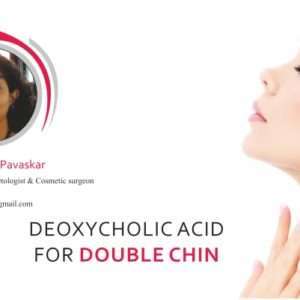Plant materials with antioxidant and skin anti-aging properties have been widely used in cosmetic products for many years. Pumpkin is one of the underutilized crops which belong to family Cucurbitaceae.
Archeological evidence from the seeds, rinds, and peduncles (stalks) of gourds show that Native Americans were cultivating cucurbits at least 8,000 years ago. Botanically, the fruit of these plants is called a pepo; a pepo has the ovary wall fused with the receptacle to form a rind. If the fruits are harvested in an immature stage, they’re called summer squash, if harvested at maturity it’s a winter squash or pumpkin.
1. POWERFUL ANIOXIDANT AND RICH SOURCE OF MINERALS NAD VITAMINS
Pumpkin fruit is an excellent source of various vitamins. Pumpkin contains large amounts of zinc, magnesium, iron, phosphorus, calcium, alphalinolenic acid, vitamin A, and vitamin B. Being high in zinc content, pumpkin may also aid the healing process. Other nutrients include magnesium, phosphorus, copper, potassium, niacin, folic acid, riboflavin, and thiamin as well as pantothenic acid, salicylic acid, beta-carotene, retinol, unsaturated oils, and antioxidants.
2. HELPS WITH THE BARRIER FUNCTION OF SKIN
The Cucurbita pepo oil contains cucurbitacins, phenolic acids, phenolic glycosides, ascorbic acid conjugates, sterols, fatty acids and flavonol which moistens and nourishes the skin.
Pumpkin seed oil is a good source of proteins, fiber and carbohydrates. It can be consumed as edible oil in our daily lives. According to different studies pumpkin along with its seeds and extract is very useful and unique vegetable plant and are used worldwide as edible source, in pharmaceutical industries as well as in cosmetic industry. Styrian pumpkin seed oil from the specie Cucurbita pepo is very special oil and also used as a remedy for different diseases.
3. ANTIMICROBIAL AND ANTIINFLAMMATORY
The valuable antimicrobial activities of pumpkin seed oil showed that it is effective against gram positive bacteria S. aureus. Pumpkin seed oil as well as the control Ampicillin had approximately same inhibitory action which showed its suitability to be used in food and in pharmaceutical drugs. The valuable antimicrobial activities of pumpkin seed oil showed that it is effective against gram positive bacteria S. aureus. Pumpkin seed oil as well as the control Ampicillin had approximately same inhibitory action which showed its suitability to be used in food and in pharmaceutical drugs. The anti-inflammatory activ- ity of Pumpkin may be attributed to promising proportions of ω-6 and ω-9 unsaturated fatty acids present in it, due to either their individual activity or the synergistic effect of these bioactive molecules. Together, these finding suggest that the derivatives of pumpkin may be an important alternative therapy for the treatment of inflammatory skin diseases, such as psoriasis, contact dermatitis and atopic dermatitis .
4. AS A KERATOLYIC
Pumpkin is used as an exfoliation accelerator and a mild retinoic acid substitute. Pumpkin contains natural fruit enzymes , ferulic acid and alpha hydroxy acids (AHAs), which dissolve dry skin cells, increase cell turnover and smooth the skin.
Pumpkin contains a wide spectrum of vitamin A derivatives that fit into the retinoic acid receptors found in the skin, activating cellular turnover. The keratolytic properties of pumpkin enzymes make a good non-abrasive preparation for much stronger exfoliations, while decreasing the oxidative and free radical stress associated with chemical exfoliations.
5. TO REJUVENATE DULL SKIN
The molecular structure of pumpkin is small and can therefore penetrate deeper into the skin when topically applied. This is wonderful for treating a dull complexion, aging skin and pigmentation.






